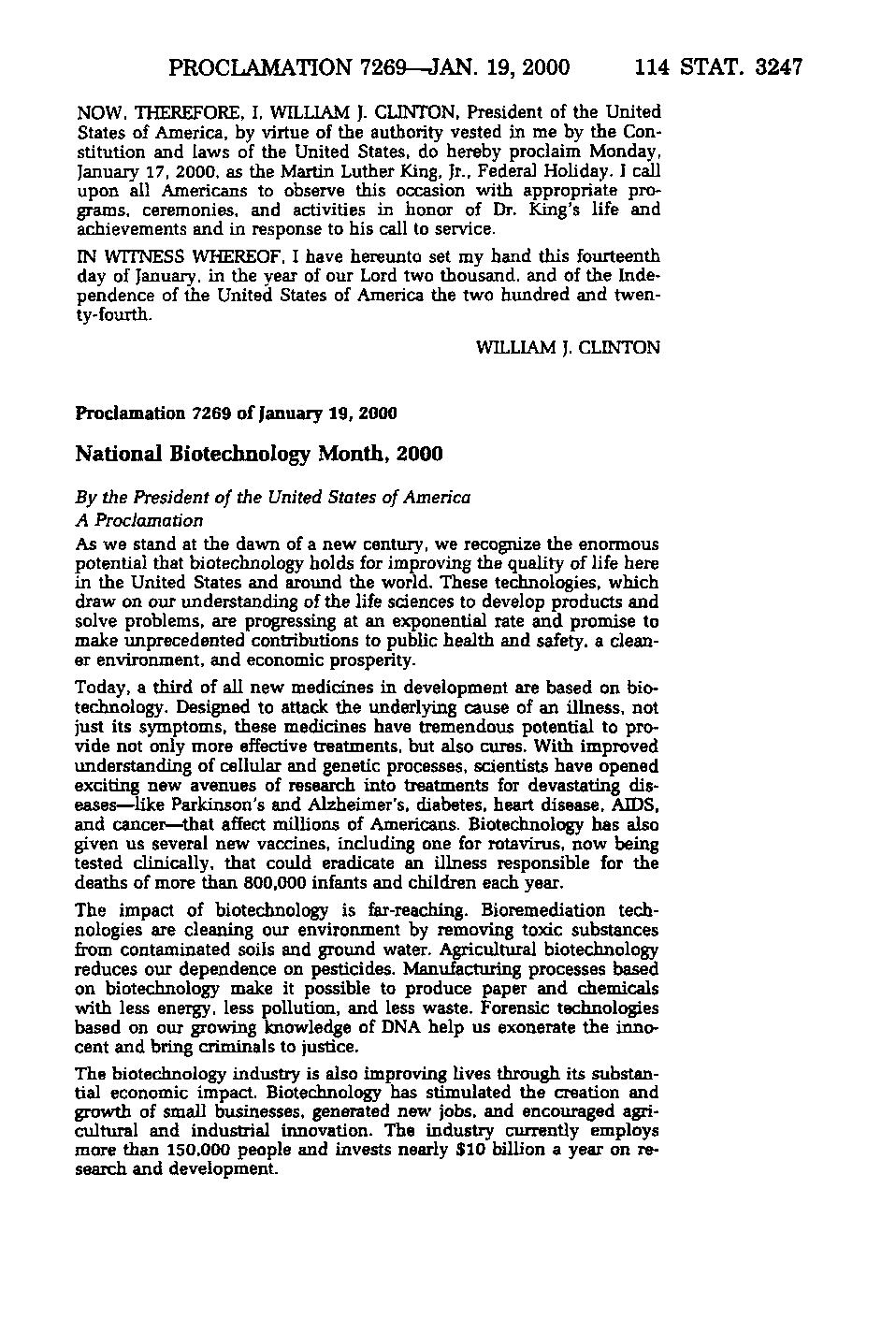PROCLAMATION 7269-^AN. 19, 2000 114 STAT. 3247 NOW. THEREFORE, I, WILLIAM J. CLINTON, President of the United States of America, by virtue of the authority vested in me by the Constitution and laws of the United States, do hereby proclaim Monday, January 17, 2000, as the Martin Luther King, Jr., Federal Holiday. I call upon all Americans to observe this occasion with appropriate programs, ceremonies, and activities in honor of Dr. King's life and achievements and in response to his call to service. IN WITNESS WHEREOF, I have hereunto set my hand this fourteenth day of January, in the year of our Lord two thousand, and of the Independence of the United States of America the two hundred and twenty-fourth. WILLIAM J. CLINTON Proclamation 7269 of January 19, 2000 National Biotechnology Month, 2000 By the President of the United States of America A Proclamation As we stand at the dawn of a new century, we recognize the enormous potential that biotechnology holds for improving the quality of life here in the United States and aroimd the world. These technologies, which draw on our understanding of the life sciences to develop products and solve problems, are progressing at an exponential rate and promise to make unprecedented contributions to public health and safety, a cleaner environment, and economic prosperity. Today, a third of all new medicines in development are based on biotechnology. Designed to attack the underlying cause of an illness, not just its symptoms, these medicines have tremendous potential to provide not only more effective treatments, but also cures. With improved understanding of cellular and genetic processes, scientists have opened exciting new avenues of research into treatments for devastating diseases—like Parkinson's and Alzheimer's, diabetes, heart disease. AIDS, and cancer—^that affect millions of Americans. Biotechnology has also given us several new vaccines, including one for rotavirus, now being tested clinically, that could eradicate an illness responsible for the deaths of more than 800,000 infants and children each year. The impact of biotechnology is far-reaching. Bioremediation technologies are cleaning our environment by removing toxic substances from contaminated soils and ground water. Agricultural biotechnology reduces our dependence on pesticides. Manufacturing processes based on biotechnology make it possible to produce paper and chemicals with less energy, less pollution, and less waste. Forensic technologies based on our growing knowledge of DNA help us exonerate the innocent and bring criminals to justice. The biotechnology industry is also improving lives through its substantial economic impact. Biotechnology has stimulated the creation and growth of small businesses, generated new jobs, and encoxu-aged agriciiltural and industrial innovation. The industry currently employs more than 150,000 people and invests nearly $10 billion a year on research and development.
�
